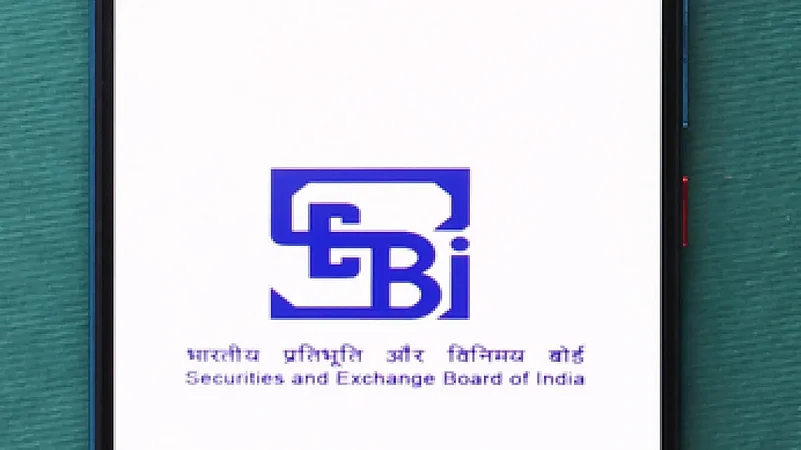The Securities and Exchange Board of India (Sebi) has extended the deadline for stockbrokers, mutual fund (MF) distributors, investment advisors and other service providers involved in MF transactions to comply with the new regulation about abolishing the pooling of funds/units in MFs. The revised deadline is now July 1, 2022. But until the new rules are implemented, Sebi has barred fund houses from launching any new new fund offer (NFO).
“As per an earlier Sebi circular of October 2021, pooling of MF units and money was supposed to be discontinued from April 1, 2022. But in a last minute move, the deadline has been extended to July 1 to give more time to intermediaries to adjust to these new guidelines,” says Pankaj Shrestha, head-investment advisory division at Prabhudas Lilladher, a financial services company.
The new guidelines will affect the way investor’s money moves. “In order to protect investors’ money, Sebi has asked all intermediaries to stop pooling of funds and directly transfer the money against every purchase and redemption via an exchange like BSE & NSE or directly transfer it to the AMC,” says Saumya Shah, co-founder, Tarrakki, a digital wealth management platform.

If you were investing in MFs via your broker, an online platform or through any other intermediary, then this new rule may affect your transactions.
What Sebi Wants
Sebi has specified that under the new system, no stockbroker, clearing corporation or any other intermediary shall process MF transactions by way of pooling of accounts. Stockbrokers and clearing corporations should not handle both pay-in and pay-out of funds. MF purchases and sales must be directly credited and debited from the respective investor’s demat/folio accounts without routing it through pool accounts.
However, for MF units held in demat account, the practice of issuing physical or online Delivery Instruction Slip (DIS) to the depository participant (DP) may continue. The DIS is an instruction slip necessary for the DP to debit the units of an MF or stock for delivery to the clearing corporation and then credit the investor’s bank account with the sale proceeds.
Some Other Changes
The earlier circular had other regulations, too, which were to be implemented by the stakeholders. Industry stakeholders had urged Sebi for more time to implement these changes. In response to that, Sebi has halted the launch of any new NFOs until the fund houses and industry stakeholders can comply with the rules, according to various media sources.
SIPs: Investors who had set up systematic investment plan (SIP) mandates with their intermediary will be affected if the mandate was in the latter’s name. Brokers and other intermediates need to put in place a mechanism with their respective payment aggregator and make sure that the beneficiary of the SIP mandate is only the approved bank account of the Sebi recognised clearing corporation. “This will ensure that the funds are received in the clearing corporation’s bank accounts directly from clients with proper verification of third-party validation,” says Roop Bhootra, CEO, investment services, Anand Rathi Shares and Stock Brokers.

Source Bank: Sebi has also specified that to comply with the Prevention of Money Laundering Act (PMLA), transactions originating from third-party bank accounts shall not be permitted, and it is the responsibility of the AMC to verify this. To comply with this rule, AMCs may engage services of Sebi-recognised clearing corporations, who will then have to validate investors’ source bank accounts and share the necessary details back with the AMC.
“Fund flow activity directly from an investor account to MF account from a registered bank account helps in mitigating the risk of fraud or negligence. The registered bank account can be verified with the investor’s KYC details to safeguard any misuse of funds,” says Vijay Kuppa, co-founder of Orowealth, a wealth and investment management fintech start-up.
Two-Factor Authentication: The capital market regulator has also asked the Association of Mutual Funds in India (Amfi) to implement the circular on two-factor authentication for the redemption of mutual funds across the industry. One of the two factors for authentication will be an OTP sent to the email or mobile number of the investor. The other will be the app password or any other means as may be specified. For offline transactions, signature validation methods will continue.
“In case of sell transaction for units other than in a demat account, two-factor authentication for online trade or signature for offline trade as confirmation will be needed. In case units are lying with the DP, the depository’s policy will be followed,” says Bhootra.
All these changes are significant and complicated to implement as there are millions of investors across platforms and apps. Therefore, Sebi has extended the deadline but barred new NFO in the meantime.
How Existing Transactions Used To Take Place
MFs transactions placed via stockbrokers and some other intermediaries are currently routed through brokers’ pool accounts. You pay for the MF unit and the money gets credited to the broker’s pool account. From there, it gets transferred to the NSE or the BSE’s clearing corporation, which then credits the money to the respective AMC’s bank account.
“Currently, there are several intermediaries like fintechs and brokers who are using the pooled accounts mechanism. The intermediaries pool in the monies from various investors and then transfer the funds to the AMC,” says Shah. This is why you would have put the broker’s name on the MF transaction cheque while buying units via their platform.













